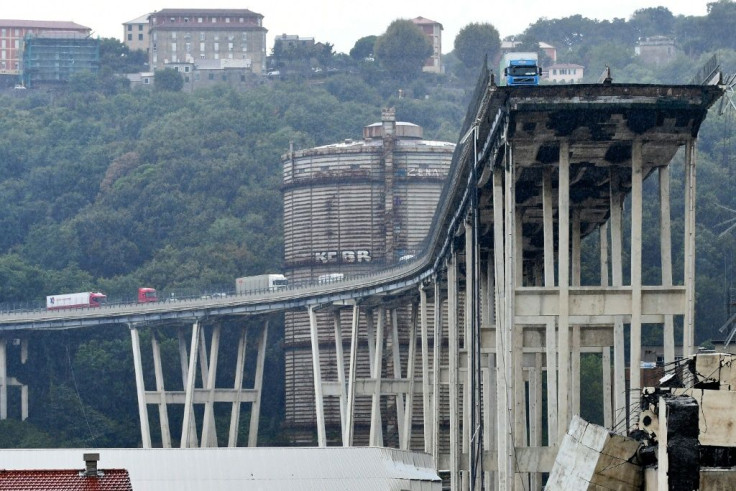Benetton Exits Italian Highways After Deadly Bridge Collapse
Two years after the deadly collapse of a bridge in Genoa, Italy's powerful Benetton family is relinquishing control of the company that manages Italian highways, which will be nationalised, the government said Wednesday.
Questions over the fate of the controversial toll-road operator Autostrade Per l'Italia, accused of poorly maintaining the bridge which crumbled in a storm in 2018 killing 43 people, have fuelled tensions within the ruling coalition.
The anti-establishment Five Star Movement (M5S) has long insisted the billionaire Benetton family, which owns most of Autostrade via its Atlantia company, should be stripped of its concessions or forced out entirely.
The center-left Democratic Party (PD) was more in favour of the state taking a stake in the road-toll operator.
The deal clinched in the small hours of Wednesday will see the "immediate transfer of control" of Autostrade (ASPI) to state lender Cassa Depositi e Prestiti (CDP), the cabinet said in a statement.
The transfer of control will take place via "a capital increase reserved for CDP and the purchase of shares by institutional investors", which will result in "the removal of ASPI from Atlantia and ASPI's listing on the stock exchange".
The amount that the Benetton family will get for Atlantia's 88 percent stake in Autostrade will depend on the price paid during the capital increase.

Autostrade will also pay 3.4 billion euros ($3.9 billion) in compensation related to the bridge collapse.
The deal also includes increased penalties for any future safety violations.
Prime Minister Giuseppe Conte had initially been reluctant to go to war with the Benettons over Autostrade.
But he had upped pressure on them over the past few days to come up with a deal, saying that "either the state receives a particularly advantageous proposal, or we will proceed with revoking" the road concessions.
The deal was welcomed by investors, with Atlantia stock jumping 25 percent in the morning on Milan's stock exchange.
But Carlo Alberto Carnevale-Maffe, a strategy professor at Milan's Bocconi University, told AFP the government "hunting down" a shareholder of a listed company "in a summary trial" was "a very negative sign for international investors".
"It is possible that (the Benettons) did not perform the proper maintenance, but it is up to the courts to prove it, and it is also clear that the state bears a responsibility, because it did not carry out controls," he said.
© Copyright AFP 2024. All rights reserved.





















